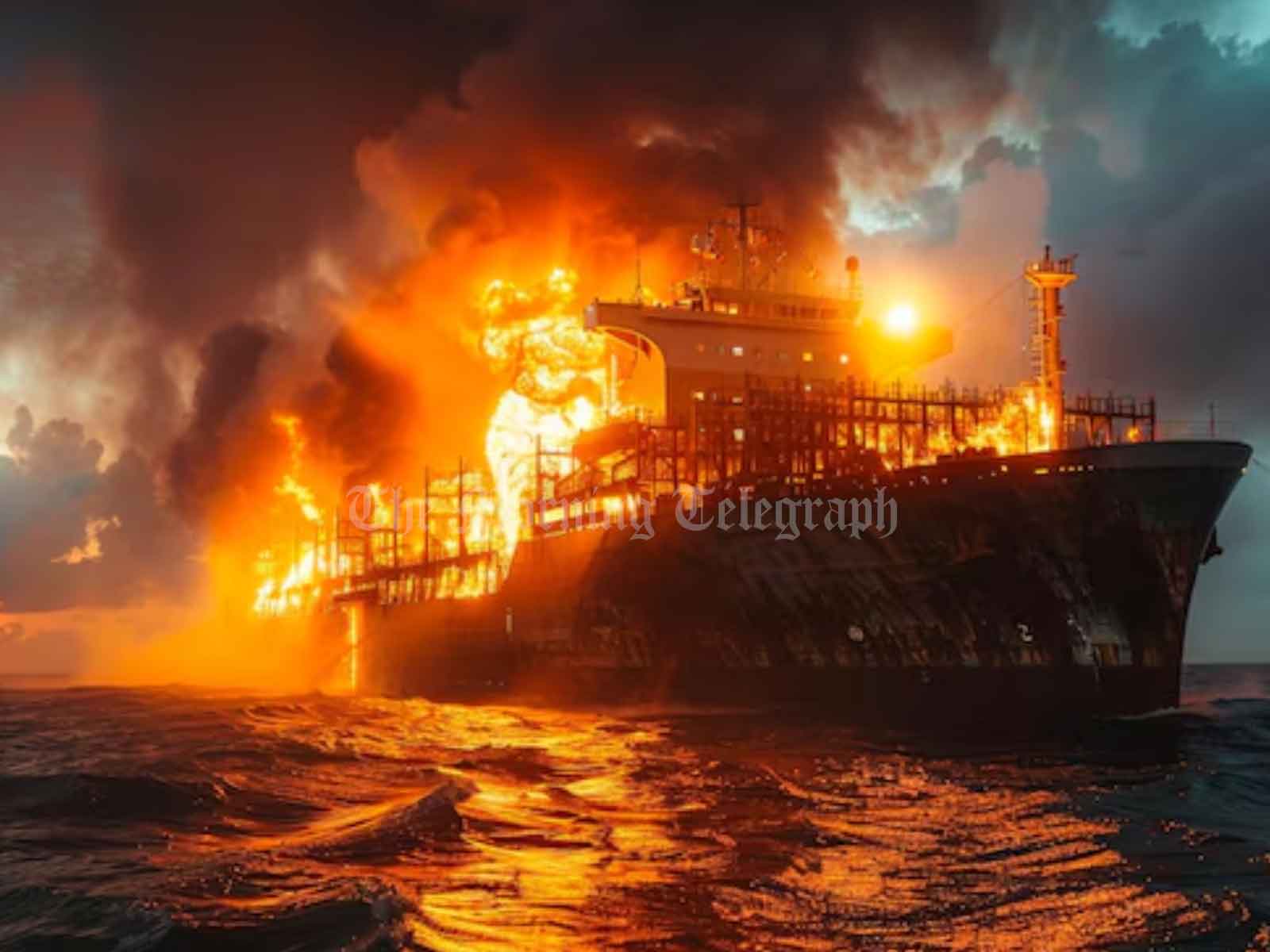
UNITED NATIONS, August 29, 2024 — The Iranian mission to the United Nations has announced that Yemen’s Houthi rebels have agreed to permit rescue ships and tugboats to assist with the Greek-flagged oil tanker, the Sounion, which has been ablaze in the Red Sea. This development comes after the Houthis previously blocked attempts to salvage the vessel, reflecting a significant shift in their stance due to humanitarian and environmental concerns.
The Sounion was attacked by the Houthis last week in what has been described as one of the most severe assaults on maritime traffic in recent weeks. The rebels have been actively targeting shipping lanes in the Red Sea, a vital corridor for global trade and aid shipments, particularly affecting regions like conflict-ridden Sudan and Yemen.
The Iranian mission reported that several unidentified countries had requested a temporary ceasefire to allow for the entry of salvage operations. The Houthis have reportedly agreed to this request, although specific terms of the agreement have not been disclosed. This agreement follows previous obstructions by the Houthis, who blocked an attempt by a third party to send two tugboats to the Sounion. U.S. officials criticized the Houthis for their blatant disregard for both human life and potential environmental damage.
Concerns have been raised about the environmental impact of the Sounion’s blaze, with fears of oil leakage threatening the Red Sea’s marine ecosystem. The European Union’s Operation Aspides, which is responsible for protecting shipping in the area, has reported that there were no confirmed reports of oil leakage from the vessel as of Wednesday. However, the situation remains critical as the potential for environmental damage persists.
The Houthi campaign against shipping is part of a broader protest against Israel’s military actions in Gaza. Their attacks have disrupted a significant portion of the $1 trillion in global trade passing through the Red Sea and have impeded aid efforts to regions like Sudan and Yemen. The Houthis have previously seized and sunk vessels and targeted ships with missiles and drones, although many of these attacks have been intercepted or failed to reach their targets.
Despite the Houthis’ claims that their attacks target ships linked to Israel, the U.S., or the U.K., investigations have found that many targeted vessels have no direct connections to these countries. In the case of the Sounion, although the Houthis asserted that the Greek company operating the vessel had ties to Israel, assessments by the Joint Maritime Information Center found no direct association.
The international community, including U.N. Secretary-General António Guterres, has called for an immediate halt to the attacks, urging compliance with international laws and protection of civilians. Meanwhile, ongoing efforts by the U.S., Qatar, and Egypt to mediate a ceasefire have faced obstacles, with Israeli Prime Minister Benjamin Netanyahu demanding “total victory” over Hamas and Hamas insisting on a lasting ceasefire and full withdrawal from Gaza.
The situation remains tense as the conflict continues to escalate, impacting both humanitarian efforts and international trade.




